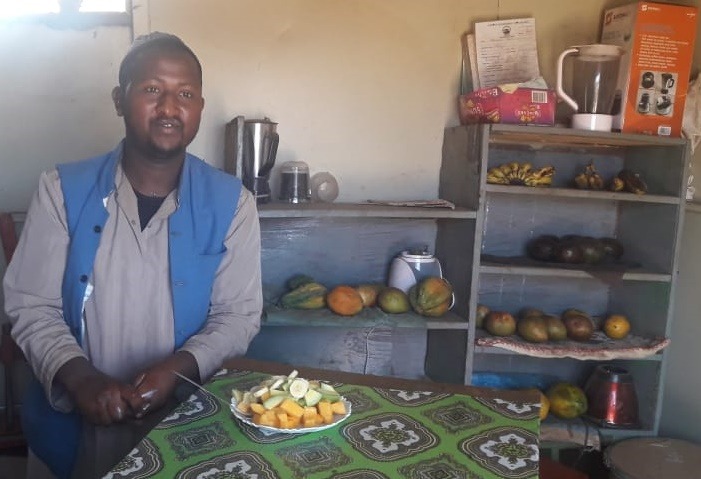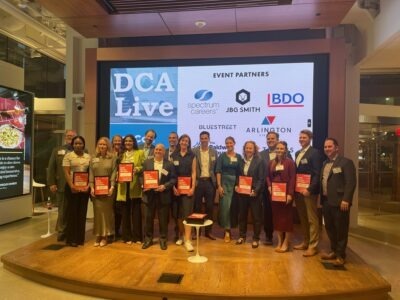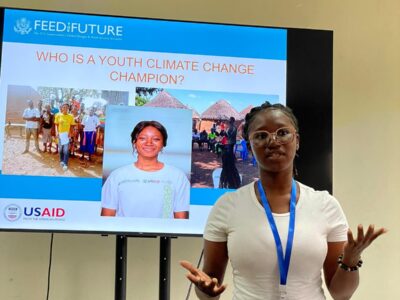
Youth in Northern Kenya face a variety of challenges, including a lack of skills, poverty, and unemployment. After completing his secondary education, Abdikadir Abdi Adan, 23, who lives in Saku, in Marsabit County, could not afford to further his education. He had to depend on others for low-paying manual labor jobs to make ends meet.
Abdikadir realized that going days without income was unsustainable. This prompted him to join a social support group of 10 other unemployed youth, with the hope of finding ideas and resources to improve his life.
In September 2018, the Feed the Future Kenya Livestock Market Systems Activity, funded by the United States Agency for International Development, selected Abdikadir’s youth group to participate in a business model canvas (BMC) training. The Activity, which is implemented by ACDI/VOCA in consortium with Mercy Corps, the BOMA Project, and Smart Regional Consultants, is part of Feed the Future’s initiative for addressing global hunger, food security, and agricultural livelihoods.
Through the training, the Activity equipped participants with entrepreneurial skills. The training covered topics such as the value of a business’s products to its customers, who the business targets, how the business acquires and maintains its customers, how it reaches each customer segment, and the resources needed to fulfill customer needs and make sales.
The BMC training was an eye-opener for Abdikadir. He was able to develop a business start-up model that led him to start his own business selling assorted fresh fruits and juices.
“I used to earn KES 300 (three dollars) a day from doing odd jobs,” Abdikadir said. “But, with my business, I now make between KES 1,000 (ten dollars) to KES 1,500 (fifteen dollars) per day. [The] Activity taught me how to keep records and how to treat my customers, which keeps them coming back.”
Abdikadir’s business is doing well, and he recently hired an employee to help him at the shop. From his profits to date, he has saved KES 50,000 (USD 500) to buy a sugarcane juice maker that will grow his customer base and increase sales. He is still faced with the challenge of receiving a consistent supply of fresh fruits, which come from the neighboring county, and this can negatively impact his business when customers’ needs are not met.
“My future plan is to expand my business so that I can be able to bring other youth on board to provide delivery services of my products to restaurants and homes.” — Abdikadir Abdi Adan, a youth participant
Part of what the Activity does in Northern Kenya is to improve youth employability and work readiness skills. This initiative targets 300 youth to benefit from skill development, scholarships, job placement linkages, internships, apprenticeships, and career mentorships. Doing so empowers youth to become self-reliant by engaging them in economic activities. In the long run, these activities will help communities increase their assets and incomes, thus strengthening their resilience in the face of recurrent shocks and stresses.
Learn more about the Feed the Future Kenya Livestock Market Systems Activity.
Learn more about our work in Kenya.






